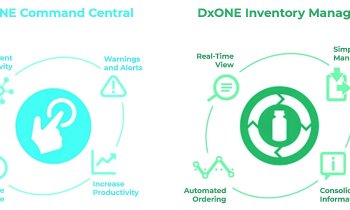News • Disease classification
A 'gaming disorder' code in ICD-11? Not so fast
Even if the World Health Organization finalizes ICD-11 in May, it will take years for U.S. doctors to start using the next classification system.
Yes, the WHO’s timeline calls for presenting the final ICD-11 to the World Health Assembly next May. And yes, the draft specification includes 6D11, or Gaming Disorder, under the subcategory "Disorders Due to Addictive Behaviors" – which, in turn, falls within "Mental, Behavioral and Neurodevelopmental Disorders." WHO characterizes gaming addiction as a behavior pattern not altogether unlike substance abuse in which a person has impaired control over gaming, gives gaming precedence over necessary daily activities and life interests, and continues escalating gaming despite negative consequences. "The pattern of gaming behavior may be continuous or episodic and recurrent," the beta ICD-11 description reads. "The gaming behavior and other features are normally evident over a period of at least 12 months in order for a diagnosis to be assigned, although the required duration may be shortened if all diagnostic requirements are met and symptoms are severe."
While arguments are brewing that it trivializes mental health issues or is entirely unnecessary, adding gaming disorder is most likely a good thing for patients, as well as public and population health efforts. And one could be forgiven for thinking that, come May Day, doctors all across America will use the new codes to diagnose kids pretty much en masse as suffering from gaming disorder.

But there’s a history here that should not be overlooked. It’s one all-too-familiar to health and technology professionals who lived through the ICD-10 transition. That particular implementation was fraught with delays – and it took more than two decades from the time WHO finalized ICD-10 in 1992 to the dreaded U.S. deadline of October 1, 2015. That switch flipped after previous compliance mandates were pushed back, largely because physician groups comprising the people who invariably feel ICD-10's impact the hardest were against the more complex code sets. Many doctors did not want to pay for the transition, they didn’t like the idea of having to actually use the codes and they were opposed to the greater granularity that, the pre-compliance argument went, would make it easier for payers to deny claims and make the collections process even more burdensome than it already was.
Indeed, the debate over ICD-10 reached high levels of American government. President Barack Obama signed a law that pushed the ICD-10 deadline back from October 1, 2013 to what eventually became the then-new October 1, 2014 deadline. Then former Republican Pennsylvania Rep. Joe Pitts introduced the Protecting Access to Medicare Act, which carried a provision that kicked the ICD-10 can down the road to October 1, 2015. Converting to ICD-10 took so long, in fact, that an argument arose in certain circles suggesting the U.S. skip it entirely and hold out for ICD-11 instead. The real counterpoint was that ICD-11 had already faced its own delays, and since the U.S. was trailing the rest of the developed world in still using a 20-year-old classification system, we could no longer afford to wait.
The somewhat comical lining in all the mainstream media reports about this latest development, and the banter about whether gaming’s benefits will be lost because of it, is that unless CMS adds gaming disorder to a future iterative update of ICD-10 – which is hardly impossible though the agency has not yet indicated its plans – doctors won’t actually use the new code for years.
Source: HIMSS/Tom Sullivan
03.01.2018









